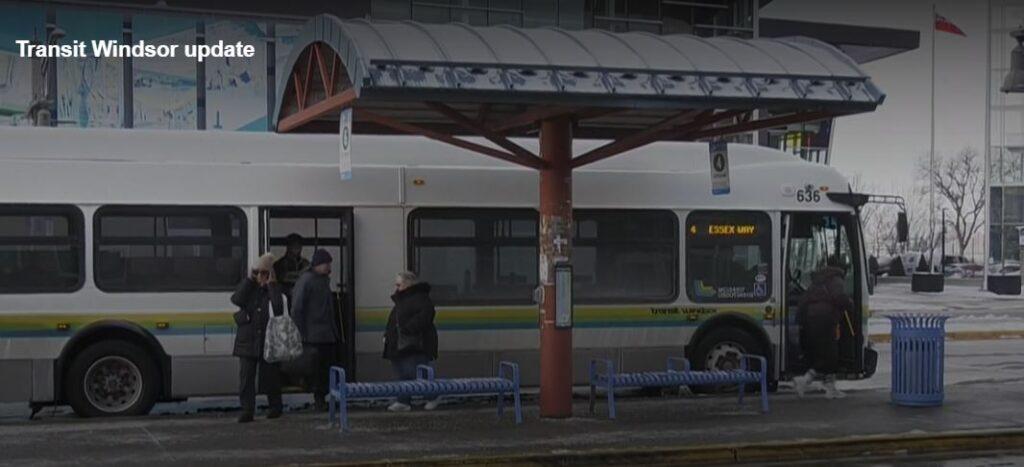
In the latest developments surrounding Transit Windsor, the union representing the city’s transit employees has announced that buses will continue to run as negotiations with the city resume on Friday.
The Amalgamated Transit Union (ATU) held a news conference at the downtown bus terminal to address the ongoing situation, providing insights into the bargaining process, concerns, and potential future actions.
Manny Sforza, the international vice-president of the ATU, emphasized their commitment to negotiating a fair deal for their members and the traveling public.
While expressing the union’s reluctance to inconvenience the public with a strike, Sforza reiterated that the possibility of a strike remains on the table, with members having the authority to call for a strike with a 72-hour notice.
A central issue in the negotiations revolves around federally mandated sick days. The federal government mandates 10 paid sick days for employees, and the ATU argues that the cost of these sick days should be borne by the employer.
However, Transit Windsor management, according to Sforza, proposes that union members cover these costs from their wage packages, leading to a contentious point of disagreement.
Sforza accused Transit Windsor management of engaging in “bad faith bargaining,” claiming that their side of the negotiations wasn’t adequately prepared over the weekend.
He emphasized that the city has the opportunity to make the negotiations work by providing workers with a fair contract, thereby preventing any potential strike.
John Di Nino, president of ATU Canada, echoed the sentiment, highlighting the importance of reaching an agreement that balances the needs of the workers, the riders, and the taxpayers.
Di Nino acknowledged the dependence of the public on buses and expressed pride in the union members’ dedication to delivering safe, reliable, and affordable transit services.
The City of Windsor’s commissioner of infrastructure services, Mark Winterton, stated that negotiators are committed to achieving an agreement that considers the needs of workers, riders, and taxpayers. Despite the challenges, there is hope that the negotiating teams can find a way to a fair deal.
In response to the accusation of “bad faith bargaining,” Sforza mentioned that the union is ready to file a complaint with the Federal Labor Relations Board if necessary.
The ATU is also seeking a wage increase in the range of 3.5 to 4 percent, citing comparability with pay rates in other municipal bus services across Canadian cities.
The union represents nearly 300 Transit Windsor employees, including bus operators, mechanics, and skilled tradespeople.
Transit Windsor’s ridership has seen an increase in recent years, leading the union to emphasize the need to recognize the demands on the system and work collaboratively to find a fair resolution.
Despite the tensions, both parties have expressed a commitment to negotiations, with talks scheduled to continue over the weekend. The union’s decision to delay the strike, which was initially set for Monday, demonstrates a willingness to avoid disrupting services while prioritizing the interests of the workers.
As the negotiations progress, the fate of Transit Windsor’s services hangs in the balance, and the public remains hopeful for a resolution that ensures the continued operation of buses and fair treatment for transit workers.




